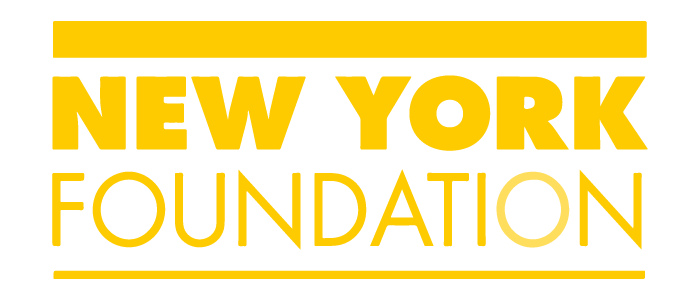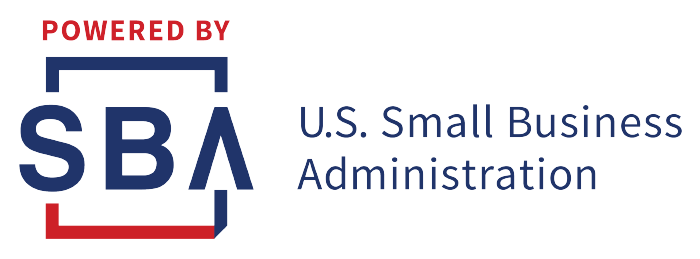Launching a business is an expensive endeavor. Especially, when you’re planning a launch in a state like New York, the expenses are going to cut through the roof.
Thankfully, there are grants for small businesses that can help you acquire substantial capital for the launch and growth of your business.
Wondering what small business grants in New York can you avail?
We’ve got you covered. This blog post outlines all the federal, state, corporate, and private grants available for businesses in New York.
Let’s check them out.
Small Business Grants in New York
New York State Grants
1. Global NY Fund Grant Program
The Global NY Fund Grant program is a $35 million fund that provides grants to small and medium-sized businesses in New York. This grant is open to both companies and nonprofits looking to expand their direct exports.
ESD is providing grants of up to $25,000 to companies to help increase exports. Nonprofits are offered up to $100,000 as grants. Export assistance and trade education are also provided. The grant aims to reimburse 50% of the total project cost.
The funds allotted can be used for
- Market customization
- Export workshops
- Trade Show Participation
- Adapting products to meet foreign regulatory requirements
Learn more about eligibility, review process, and apply
2. Global NY State Trade Expansion Program (STEP)
ESD in partnership with the U.S. Small Business Administration (SBA) is offering financial grants to small and medium-sized business owners to increase competitiveness in the export market. This grant will be used to increase the value of exports made and increase the overall GDP.
Funds allotted under STEP can be used for
- Participation in programmed foreign trade missions
- Qualified foreign market sales trip
- Participation in export training workshops
- Trade show exhibition
- Consultancy services
- Development of an international marketing campaign
The funding period for the STEP 11 program is September 30, 2023 – December 31, 2024. Each selected company is eligible to receive upto $10,000 per funding period.
Federal Grants
1. Grants.gov
Grants.gov is a comprehensive resource of all available government business grants. These small business grants are administered by various federal agencies. This helps them support a wide range of businesses such as restaurants, elderly care services, health clinics, etc.
Learn more about these federal grants
2. Small Business Innovation Research (SBIR) and Small Business Technology Transfer Program (STTR)

This federal grant is powered by the Small Business Administration (SBA) and helps business owners dive deep into research and development of new technology. The government aims to help businesses by turning research into a valuable commodity.
Learn more about SBIR and STTR, here
Need help creating a business plan?
Maximize your chances of getting grants by creating a solid business plan
Plans starting from $14/month

Private Grants
1. New York StartUP! Business Plan Competition
It is a competition hosted by the New York Public Library in collaboration with Wells Fargo. It caters specifically to New York state entrepreneurs. Participants can win cash prizes between $7,500- $15,000. They are also given practical insights on growing and scaling their startup ideas.
Eligibility criteria include
- Participants must live in Manhattan, The Bronx, or Staten Island
- Business must be located in the above-mentioned locations only
- All participant’s businesses must be in the start-up phase and earn less than $10,000.
2. New York Foundation Grant

Are you an emerging organization in NYC centering racial, economic, gender, disability, and climate justice, led by Black, Indigenous, LGBTQIA+ people, women, and people of color?
There is good news.
New York Foundation Grants support community organizing and grassroots advocacy with funds up to $47,500 per year.
They believe in the power of supporting marginalized communities and grassroots groups to bring about transformative change.
In addition to funds, for helping businesses grow, grants include
- Community Resource Exchange
- Workshops – Coaching and skill-building
- Small Grants – $10,000 for business goals and emergency needs
- Pro Bono legal services
How to find the best-suited grant for small businesses?
Now that we have briefly discussed the various grants for helping small businesses grow, let’s dive deeper into the grant application process. Preparing for the application process is half the battle won.
1. Understand your business eligibility
The process of securing grants is highly competitive.
Business owners must make the most of their time and effort by studying and meeting the various eligibility criteria for the grants. Studying your business in-depth can help you reveal opportunities that have not yet been leveraged.
For example, if you or your spouse belong to the BIPOC (Black, Indigenous, and/or people of color) community, you become eligible for grants that offer aid, especially to these communities.
2. Check if your business is a right fit for grants
A few criteria that business owners must be aware of and have documents to support their claims:
- The number of years the business has been operational
- Revenue growth attained in each financial year
- Tax returns for each financial year
- Assessment test results such as FICO (Credit scores)
- Previous grants applied and accepted/rejected for
- Number of employees
- Percentage of the business stake owned by BIPOC or minority community member
- Type of organization – for-profit or non-profit
Answers to the above points can help you realize if your business is the right fit for a particular grant or not.
Where to Find New Small Business Grants?
1. Empire State Development (ESD)
ESD is the umbrella organization for New York’s two principal economic development corporations – the New York State Urban Development Corporation and the New York Job Development Authority.
ESD’s mission is to promote New York state’s economy, encourage business development and create jobs. They aim to achieve this through the efficient use of loans, grants, tax credits, real estate development, marketing, and other forms of assistance.
Find out more state grants
2. SCORE.org

Backed by the U.S. Small Business Administration (U.S SBA), Score.org provides business assistance to small business owners. A learning library, resource center, and experienced mentorship are provided. Also, mentors provide customized advice based on your grant application.
3. Small Business Development Centers (SBDC)

SBDC, too, is backed by the U.S. SBA. The SBDC centers help you apply for various grants and provide business assistance. They act as your best alternative to private consultancy, without being expensive. They help with – marketing, engineering, production, etc.
Explore other alternatives to grants
If you find yourself ineligible for a particular grant or find the process of applying for a grant tedious, you can explore other financing alternatives to grants such as loan programs, credit cards, or crowdfunding.
Let’s explore them briefly.
1. Small business commercial loans
You can choose the right financing needed by comparing options such as – commercial loans, SBA loans, business lines of credit, equipment loans, and term loans. Loans are quick and easy to obtain but require collateral from business owners.
2. Small business micro-loans
If commercial loans do not interest you, you can explore micro-loans as an option. Small loans that are less than $50,000 in value, have shorter terms, and have low interest rates qualify as microloans.
3. Small business credit cards
Do you want to undertake business purchases while earning credit points? Credit cards are the perfect fit for you then. There are a host of credit cards that you can explore.
4. Crowdfunding for small businesses
Online platforms such as Kickstarter help leverage the power of social funding for your small business. People support your business if they find it to be creative and value-adding
How would a grant impact your business?
Still unsure if availing of a grant is the best possible option to fund your business growth?
Let’s understand the advantages and disadvantages in detail, to decide better.
Advantages

Easy access to capital
If you are a small business owner looking to expand your business or hire specialists in your existing team, grants can help you achieve those objectives more quickly. Grants act as complimentary money without the pressure to repay.
Waterfall effect
If your small business has qualified for a grant and has generated a positive return on the investment, it becomes easy to secure other grants. This happens purely because investors and facilitators can see a positive outcome in the process. Do check eligibility requirements if you have already been awarded a grant and plan to apply for one more.
Helps gain credibility
If you have been awarded a grant, it helps you gain visibility for your work. This in return can help you promote your business idea and get your work noticed.
Explore untapped opportunities
Certain grants ensure that the small business spends on particular activities such as hiring consultants and examining their environmental impact. This can help businesses explore untapped opportunities which in return could prove to be beneficial for the firm.
Limitations

Competitive
Since the number of small businesses in New York is extremely high, securing a grant becomes highly competitive. The best way is to be on the constant lookout for available grants before they close their applications.
Time-consuming
The grant application is a tedious and cumbersome process. A lot of process needs to be taken care of before the aid is availed. Research, paperwork, finding the right fit for your business, and a convincing proposal—a lot goes into submitting a grant application.
Uncertain renewal
One of the major drawbacks of grants is that they might not be renewed. This can be scary since business owners need to undertake decisions based on the grants available, which may not be in the best interest of the firm. Entrepreneurs would have to reapply to avail of grants once the funds are exhausted. The best possible solution is to make sustainable financial decisions.
Conditions attached
Although grants help scale your business operations, there are restrictions and conditions attached. Businesses can invest the grant only for specific activities. These activities need to be very specific and are audited by the granting agency. Therefore, business owners should be clear about the activity the grants will be used for.
Conclusion
Applying for a grant is a competitive and recurring process. However, securing a grant will help you expand your business, scale your operations, and increase productivity.
Now before you apply for the grants, make sure you have a solid business plan explaining your funding requirements. Most grant processes would ask for a business plan or proposal to complete your application.
Don’t worry. With Upmetrics, you can whip up a detailed and comprehensive business plan in less than 10 minutes.


